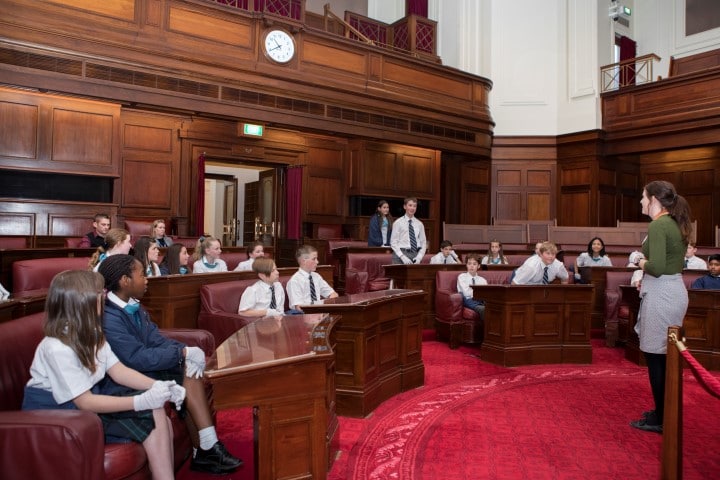Today, on the International Day of Democracy, Canberra Daily talks to the director of the Museum of Australian Democracy – and learns that despite some pundits’ concerns over the past 18 months, Australian democracy is flourishing, and not yet ready to be relegated to a museum shelf.
“We have a world-class democracy, but we need to be vigilant,” said Daryl Karp AM.
Australia led the world in the peaceful transition of governments since Federation, she stated; it has the first constitution written and voted on by the people (1901), it was one of the first countries to introduce universal suffrage for (white) women (1902), and was also one of the first to introduce compulsory voting for all citizens (1924). The Freedom House Index gives Australia a score of 97 out of 100 in terms of democratic freedoms.
“But 2021 is a crucial time to think about democracy, what we want from it, and how we practise it.”
MoAD is unique; few museums in the world educate their citizens about democracy from toddlers to adulthood. The museum is a testament to Australians’ civic engagement; in an average year, 90,000 students come through its doors at Old Parliament House. Children under five learn that with rights come responsibilities, and how to vote. Children under 14 learn they can make a difference, and about role models from Linda Burney, the first Indigenous woman to be elected to a state/territory parliament, to Andrew Inglis Clark, co-author of the Australian Constitution.
Older students and adults can learn about political cartoons, the importance of a free press, and have necessary but uncomfortable conversations about whether democracy is in crisis and how it can be renewed.
According to Ms Karp, many MoAD visitors are well-informed and considered; they recognise the importance of freedom of expression and sharing ideas, but argue that a meritocracy isn’t enough to help the underprivileged, or wonder what defines a good politician.
“The public recognises we have a terrific system in Australia – one of the best in the world – and we shouldn’t take our eye off it; we need to keep it that way.”
- Don’t take your media – social media in particular – at face value
- Engage with those parts of politics that interest you.
- Be actively engaged in a civic society. Be knowledgeable about what’s going on around you, stand up for what you believe is appropriate and right. Volunteer.
- Join political parties, if you want to; hand out how-to-vote cards; run for parliament.
For more news:



